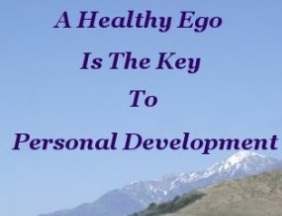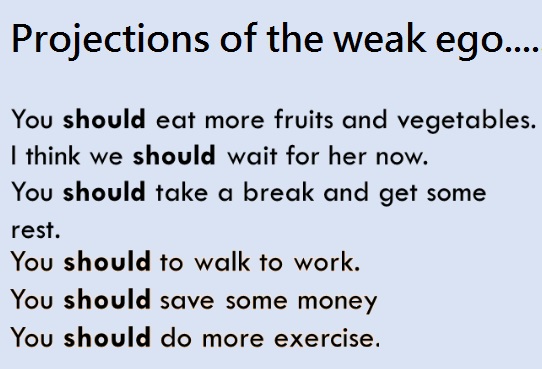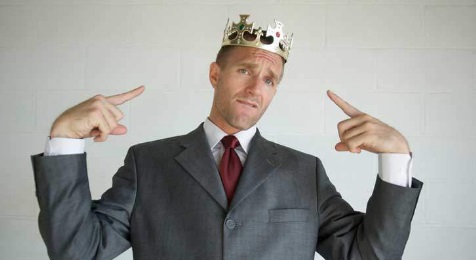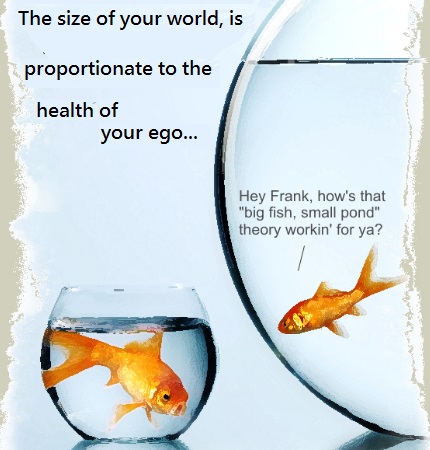https://files.peakd.com/file/peakd-hive/lucylin/ji8Q1MMk-cvg20-20Copy.jpg
A healthy ego is _essential_ .

But what is an 'healthy ego' - and an unhealthy one? _And how does this effect your perspective of reality, and therefor your mindset, when trading?_ I'll use this post to describe the differences of weak ego and strong ego, and use it the context of crypto trading to make it more relevant (and enable me to blog on @leofinance). I'm a great believer in starting the fundamentals, and working up - and psychological self awareness is one of those fundamentals - _especially_ when it comes to trading... If you don't know thyself, then how the hell are _you_ gonna make the right decisions? Freud’s three component parts of the personality are described as: Id. Ego. Super-ego. (see my previous @deepdive posts to full understand better, the relationship between the three components). #### So what is ‘the ego’ or ‘ego-strength’? Psychological theorists speak of _the intrinsic human striving for personal power, and autonomy_. This appears to be a universal ego drive - one that is not only 'normal', but psychologically healthy. _(adding weight to the argument that 'lefty/statism', is, in fact, _psychologically unhealthy_ and indicative of underlying mental illness - _delusion_ being just one expression of this mindset)_. #### This (and other 'social striving' attributes) are widely seen as the universal motivators of human behavior. Why then, is a healthy ego so essential? A healthy ego has an ability to regulate painful emotions - ones that are rooted in anger and fear. Ego-strength - and ego-weakness - and the differences- need to be understood. By looking at the characteristics of both, it will help in the self awareness process, and where you stand. A 'getting to know thyself' exercise.... Undeveloped (weak) and well-developed (strong) ego strength.... First off, the term ‘ego’ is commonly used to describe a person who boasts, who's arrogant, treats others with derision, and lacks empathy. This is an incorrect use of term 'ego' - because, in and of itself - the ego is _neutral_ . The term 'ego' can take on different meanings, depending on where it falls in the spectrum - A healthy ego on the one end, and an unhealthy one, on the other. ##### 'Ego strength' refers to a cultivated resiliency (learned). It reinforces our core sense of 'self'. As we learn to face problems in life, and grow from challenging events (or persons) in our lives, it _strengthens_ that relationship with _the self_. Our ego strength becomes an integral part of our emotional and cultural development and the forming of our sense of 'self'. In the first years of life, it's our interactions with _primary carers_ that shape our ego and ego strength - in ways that can have a lifelong impact. A young child’s sense of self (especially in response to stress) is _specifically_ in relation to exchanges with primary caregivers. ##### _It’s up to us if we can apply our conscious self to integrate changes, to these 'subconscious imprints'_.

#### Characteristics... A person with weak ego-strength lacks resiliency. They will tend to stick to what feels comfortable to them and will _seek to avoid_, what does not...('hodling' could be seen as one expression of this). They also tend to hold _unrealistic expectations_. (like 'going to the moon' with crypto currencies). These expectations _are held in place by emotionally charged beliefs that activate the body’s stress response_. #### _Unrealistic expectations are rooted in fear and anxiety_. The weak ego will _consciously_ try to rationalize their actions to themselves to avoid any psychological discomfort. In trading terms, this could be seen as hodling while watching token value slide, and then rationalizing the behavior of being apathetic.... . 'It will rally soon', 'it will go to the moon', and in the case of Hive, 'wait for the killer app' 'when we reach mass adoption'...ALL of these are _conscious rationalizations_. #### These conscious rationalizations will help to mitigate any feelings so as to avoid acknowledging one fact - _that the motivations behind the apathy, are based in anxiety and fear_. I mean that thinking patterns will be out of balance. Thinking patterns that are distorted by 'the self's' underlying subconscious, motivations of fear and anxiety. It can mean that a person may hold self limiting beliefs and toxic thinking patterns. It can cause them to _always think that they lack resources_, and they're too weak (fragile ), to handle certain situations, such as conflicts. On the other extreme part of the weak ego - they rely on their anger and rage , they wish to compel others to recognize, appreciate or love them....This is a covert narcissist's pathology._(See my recent @deepdives posts, to understand more about narcissism)_. They hold unrealistic expectations that others - or life - should take their pain away. _***I use the word 'should' intentionally***_. _I have no empirical evidence (or any , in fact) for this hypothesis - but I would posit that the word 'should', is used more by the 'weak ego individual' than anyone else_.

##### Unrealistic expectations are based on core beliefs - ones that activate the body’s stress response . This then sets the psyche (a 'default setting'), into 'defense mode'. By (unconsciously) selecting this self protective mode, _learning ability becomes severely impeded_. This response to stress activates the 'sympathetic division' of the autonomic nervous system. The stress and anxiety then _shuts down_ the brain’s learning mode. (it's called a _parasympathetic division_). What this then means, is that the thinking parts of the brain are _not operating properly_ - and thus makes it far less - _if not impossible_ , to consider alternative options to a specific problem that they face. New possibilities, and different paradigms, are simply NOT SEEN. _In trading terms , think of 'the sunk cost fallacy' as an example of this._ _“The sunk cost effect is the general tendency for people to continue an endeavor, or to continue an option if they’ve invested time or money or some resource in it, even if it’s pushing you to do things that are making you unhappy or worse off"..._ These fear and anxiety responses not only block us from developing a healthier ego - ego _strength_, they also make us _prone to repeating_ problematic behavior patterns. Unless addressed, it can becomes a 'default setting'in life (a forever diminishing circle' ). An underdeveloped ego-strength lives and acts in defensive ways that are self-perpetuating. This then _further weakens_ any capacity to cope with day to day challenges. Characteristically the weak ego will: Waste a lot of energy fighting - or hating - reality. Reject (or deny) _the necessity_ of facing what they most fear. _Confuse strength with the defense strategies that they most rely on_. Refuse to accept, or deal with, what's happening in their lives. Have unrealistic expectations for what ‘should’ or ‘must’ happen in order for them to feel strong or valued. Believe that happiness in life means having _the absence of emotional pain, fear and anger_. #### Outward appearances can be deceiving. Paradoxically, ‘the big ego’ is the weaker ego.

The weaker the ego strength, the more adamant a refusal to feel - and to process - painful feelings, beliefs and thoughts. The very ones that are _essential_ with which break free of their 'stuck dynamics'. #### The characteristics of high ego strength... A person with well developed ego-strength is resilient, optimistic , and has a strong sense of 'self'. They take a learning approach to life that grows their strength and confidence. They have an ability to tolerate discomfort and to regulate their emotions (as opposed to feeling overwhelmed by them, seen in the weak ego). Life is one filled with curiosity and readiness to explore, and to learn about what strengthens them, thus, increasing their chances of finding new ways of coping with challenges. They _do not take personally_ what others say or do, and regard themselves - and others - as fallible. The stronger the ego-strength, the more comfortable one feels in taking ownership of their problems _AND giving ownership to others, for theirs_. (coincidentally, the antithesis of leftist ideology). Healthy ego strength is connected to a healthy 'self' concept. They can differentiate and understand the differences between _wants_ and _needs_ and to discern between what can and cannot be changed - and responding accordingly. ### Why a healthy ego is essential to health, wealth, and happiness. A healthy ego gives us the ego strength to navigate challenges, and to deal and emotions and vulnerability that's rooted in fear and anxiety. ### In summation.. Your level of ego-strength refers to your ability to be adaptive, flexible and resilient and in _how you respond_ to challenging circumstances in your life. ##### Thus, ego-strength is a measure of: Your personal power to make optimal choices. A capacity to regulate difficult emotions so as to remain in optimal states. The ability to accept what _is_, and tolerate discomfort, stress, frustration - without getting triggered. _Your ego-strength reflects to the extent to which your core beliefs and expectation are ***serving you***._ When your core beliefs ***are not*** serving you, they turn fears into 'bigger than life' illusions. They unnecessarily activate your body’s stress response, making for defensive tactics - such as blame, avoidance or denial. Importantly - _They block you from making new healthy choices or changes_. They keep you stuck repeating behaviors, habits, and repetitive activities. All of these lower your ego-strength.

Knowing yourself will improve your trading strategies and rewards. Knowing yourself really puts _you_ in the driving seat - _as opposed to being a back seat driver_... (while, at the same time, _tricking yourself_ into the belief that you're actually in the driving seat).

Originally posted here: https://hive.blog/hive-122315/@lucylin/weak-and-strong-ego-s-they-aren-t-what-you-think-know-thyself




No comments:
Post a Comment